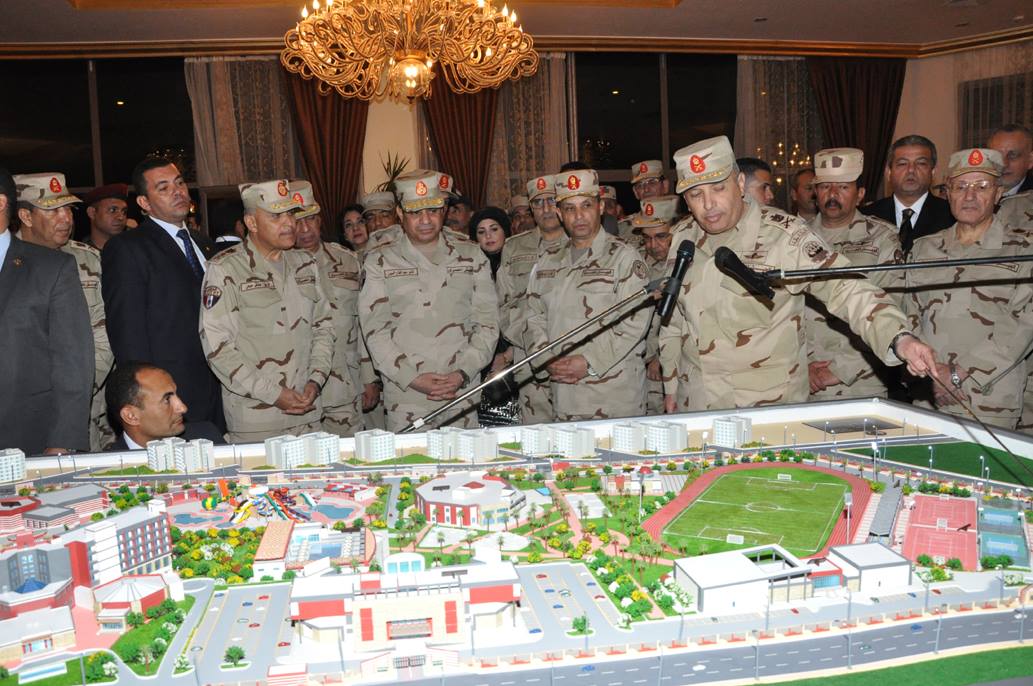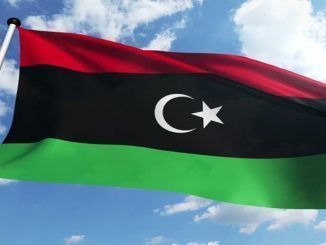
The Egyptian Ministry of Supply’s giving away of its responsibility in managing the subsidy card system to the Ministry of Military Production and the Awkaf (Religious Endowment) Ministry’s authorization of the Ministry of Military Production to sell 10,000 acres of land related to Al-Awkaf to investors – came to ensure the accusations raised against the military institution that it seeks to fully control all the economic and civil activities in Egypt, said Al-Jazeera in a report.
The recent roles dominated by the Ministry of Military Production are added to other projects that have been dominated by the military such as automating the agriculture property documentation and a contract for constructing a new building for the Lawyers Syndicate which is consistent with the military institution’s penetration of the Egyptian politics and economy in general.
The military also dominated the political positions, starting from the presidency that was usurped by Abdel Fattah al-Sisi, who led a military coup that brought him to power, as well as a large number of ministers with a military background (a number of army generals appointed as ministers, not necessarily military-related ministries).
Among these areas penetrated by the military were the administration of governorates (provinces), districts, universities, research centers, the national institutes, the consumer’s protection associations, sports stadiums, public hospitals and foreign schools (schools teaching foreign curricula such as the American, British and Canadian diplomas), the boards of directors in holding companies and the oil and natural gas sectors and others.
In March 2014, the Washington Post said that the Egyptian Armed Forces control nearly 60% of the Egyptian economy pointing that the revenues of these projects aren’t announced to the Egyptian public.
In this context, Mohamed Mahsoub, a former Minister of State for Legal Affairs during President Morsi’s era, perceives the military rush to control the civil activities in the country as “the main target behind the military coup and the main problem as the military institution aims to control the country’s resources.”
Mahsoub considers this as a real threat, saying, “the military role is mainly related to defense and not to economy.” He continued, “and being busy, this role will weaken its capabilities in carrying out its main role.”
He also pointed that, “the budget of the military institution is outside the state’s budget and therefore, all its projects aren’t under any supervision.” Mahsoub added that “handing over the bread supply system to the military institution aims to put the bread as a bargain tool as it (bread supply) would be a pressure card to ensure the people’s support of its remaining in power to secure bread.” He also pointed that “managing the national economy by a military institution, which is dominating power, will put all the pressure tools in its hands, including the starvation threat.”
On the other hand, the chairman of the International Academy for Studies and Development Mamdouh Mounir said, al-Sisi, “wants to guarantee the military loyalty, that’s why he is keen to provide them with financial benefits whether they were useful to the country or not, though most economic experts agree that what al-Sisi is doing will destroy the Egyptian economy.”
The “absence of accountability and transparency in the civil activities implemented by the military will lead these activities to corruption, and the military institution’s control over investment in Egypt will push businessmen to decline thinking of investment in a country, where there will be no opportunity in light of the domination of the military institution”.
He also considered that what the military institution is doing through its related ministries in the government, “destroys it (the military institution) completely and holds it away from its main objective.” He continued, “Its preoccupation of civilian roles nullifies its effectiveness in protecting the homeland, and we have reached a point where Egypt has become an army that has a state and not vice versa.”
On the other hand, the military expert Gen. Sadek Abd Al-Wahed denied all the accusations against the military institution on its pursuit to dominate the civil activities in the country, considering that this, “role isn’t a new one but it is one of the most successful roles done by the institution for a long time.”
He also said that, “the new thing was the broad announcement of these roles, where the military institution has proved its high efficiency and expertise in carrying them out compared with any other institution.”
The military expert said that “the excessive demand on the military institution (for carrying out civilian economic projects), the confidence in its capabilities and the accomplishment of works on time at low prices, compared to the well-known delay of the state civil sector and its frequent problems were among the main reasons that prompted the military institution and the ministries of defense and military production to assume this responsibility.”



